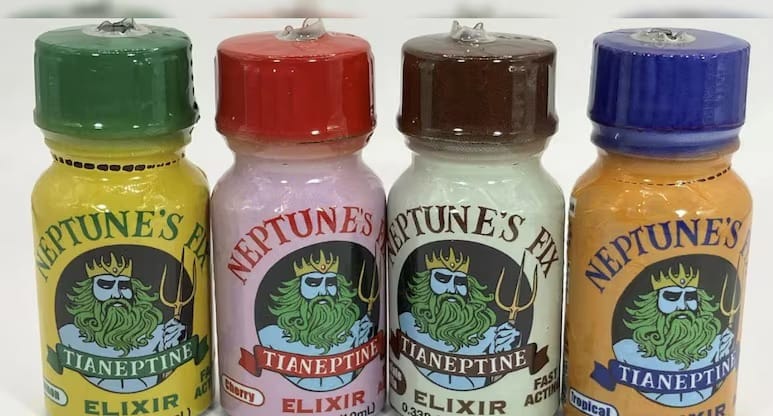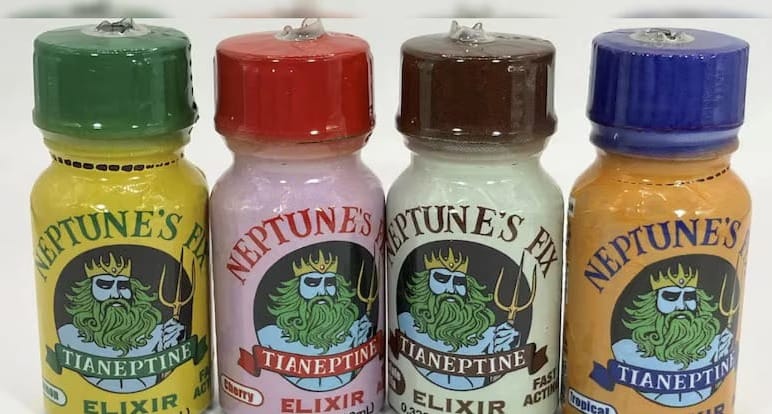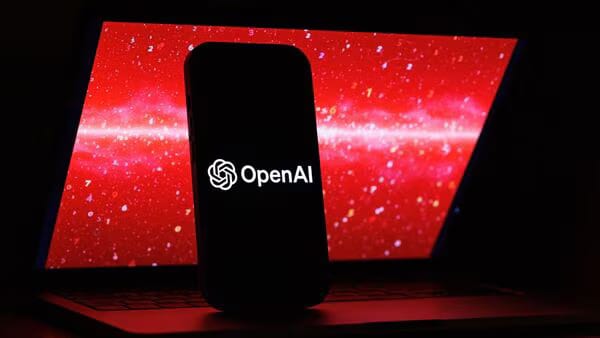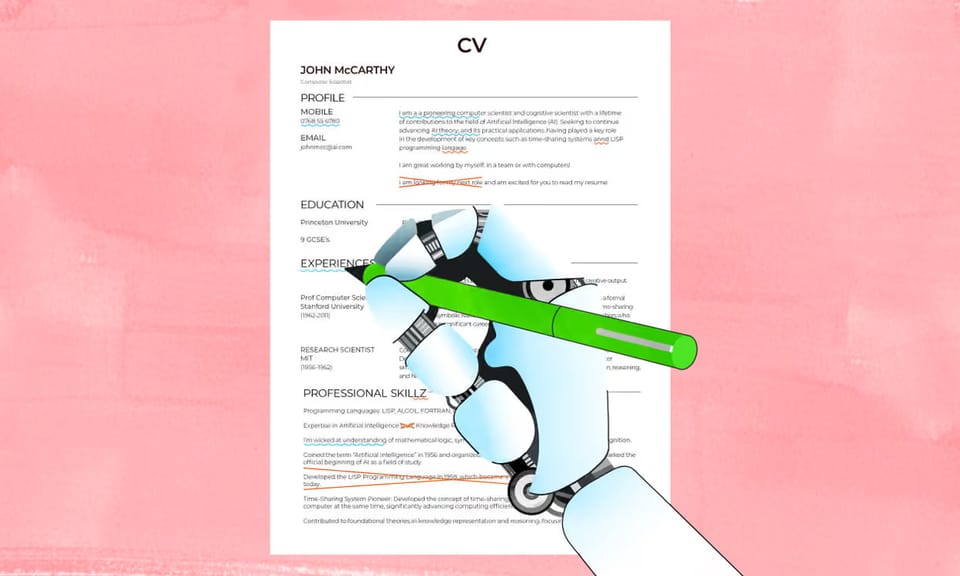Are Gas Stations the New Drug Dealers for America’s Youth


In this issue:
- China’s nuclear stockpile is growing fast, could it spark a new arms race?
- Gas stations are selling a dangerous drug that’s landing people in the ICU.
- And the Trump family just launched their own phone service, politics meets mobile tech.
Let’s get into it.
Law and Government
Is China’s Growing Nuclear Arsenal a Danger We’re Ignoring?
Briefing: China is building up its nuclear weapons faster than any other country right now. A new report says China now has over 500 nuclear warheads and could have around 1,500 by 2035 if it keeps going at this pace.
Details: The information comes from SIPRI (Stockholm International Peace Research Institute), a group that studies global weapons and military trends. In just one year, China added about 90 new nuclear warheads to its stockpile. A warhead is the part of a missile or bomb that causes the explosion. A nuclear warhead uses extremely powerful energy from splitting atoms (called nuclear fission) to cause massive destruction. When loaded onto a missile, it can travel long distances and hit targets far away.
China is also building hundreds of new missile silos underground bunkers where these missiles and warheads can be stored and launched. Right now, only about 24 of China’s warheads are ready to be launched quickly, but that number could grow fast. Even though China says it won’t be the first to use nuclear weapons in a war (a policy known as “no first use”), it’s still working on expanding its nuclear power and becoming more prepared.
Why It Matters: This is a big change. For years, the world was slowly reducing nuclear weapons. Now, that’s turning around. If China reaches 1,500 warheads, it would be closer to the levels held by the U.S. and Russia. That could lead to more tension and less trust between countries, especially in places like Taiwan or the South China Sea. It might also spark a new arms race, where more countries start building up their nuclear forces again. (The Guardian)
Right now, AI is already helping researchers monitor China’s expanding arsenal through satellite image analysis. Tools from companies like Planet Labs and techniques using machine learning have helped detect new missile silos and military activity in remote regions of China. As for control, AI is used for support systems like threat detection and early warning but global powers have avoided letting AI make launch decisions because of the risk of errors or misinterpretations. Experts strongly warn against giving AI that much power, citing the dangers of misfired alerts or accidents in high-stakes environments. (Rand)
Health
Are Gas Stations the New Drug Dealers for America’s Youth

Briefing: U.S. health officials are sounding the alarm about a drug being sold at gas stations and smoke shops, often called “gas station heroin.” These products are labeled as energy boosters or mood enhancers, but they contain tianeptine, a powerful substance that isn’t approved for use in the U.S.
Details: Tianeptine is sold under names like Zaza, Tianaa, Pegasus, TD Red, and Neptune’s Fix. Although it’s used as an antidepressant in some countries, in the U.S. it’s not approved by the FDA and is banned from being sold in dietary supplements. The drug acts on the brain’s opioid receptors, meaning it can cause effects similar to strong painkillers, like slowed breathing, seizures, low blood pressure, and a racing heart.
Poison control centers in the U.S. have seen a 525% jump in tianeptine-related calls between 2018 and 2023. In recent months, more than half of the reported cases needed ICU care. Some products were also found to be contaminated with synthetic cannabis and other unexpected drugs. While tianeptine isn’t federally banned, several states like Alabama, Tennessee, and Georgia have outlawed it.
Why It Matters: People may think they’re buying harmless over-the-counter supplements, but they’re actually getting a drug with serious risks. The effects are similar to opioids, raising concerns this could become another drug crisis. Plus, because the products are cheap and easy to get, younger people may be especially vulnerable. (NDTV)
AI could help stop “gas station heroin” by detecting tianeptine in products using machine learning and portable scanners like NIR(Near-Infrared Spectroscopy) or LIBS(Laser-Induced Breakdown Spectroscopy) tools already proven to find hidden or unsafe ingredients in supplements. AI can also monitor online chatter for early warnings, as studies show it can flag drug trends through social media and forums. (NIH)
Travel & Transportation
Would You Still Travel If Your Dream Destination Was Labeled a Crime Risk?

Briefing: The U.S. government just issued a warning to travelers heading to popular places like the Dominican Republic, Italy, Germany, and Jamaica. They’ve raised the alert level for these countries due to rising crime or possible terrorist attacks. The warning means travelers should be extra careful but it doesn’t say don’t go.
Details: In the Dominican Republic, crime is going up, even in tourist spots. There have been more robberies, sexual assaults, and even murders. The U.S. says more police are out, but travelers still need to be alert at all times. Jamaica also made the list. The U.S. is worried about violent crime and says local hospitals might not be able to help well in emergencies.
Brazil was also flagged for crime and possible kidnappings, especially near borders or poor neighborhoods. Over in Europe, countries like Italy, Germany, France, Belgium, and Denmark were listed because of the risk of terrorism. In Italy, the warning was just raised in late May. Officials say places like train stations, shopping areas, and churches could be targets.
Why It Matters: Summer travel is picking up, and lots of Americans are heading overseas. These alerts are a reminder to stay aware, avoid risky places, and be smart while traveling. The U.S. suggests signing up for their free Smart Traveler Enrollment Program (STEP) to get real-time safety updates and make it easier for the embassy to help if needed. (TTW)
AI can help predict where travel advisories might be needed. AI tools used in travel risk assessments include several powerful technologies working behind the scenes. Predictive analytics tools like Random Forests and Neural Networks can scan huge amounts of crime reports, protest records, and past advisories to spot patterns and predict future trouble spots such as in the MLP/USAID project by the University of Pennsylvania. Real-time monitoring tools like Dataminr and Primer AI track breaking news, social media posts, and local chatter using natural language processing (NLP) to detect early signs of unrest or danger. Some platforms, originally made for predictive policing like PredPol are now being adapted for broader public safety but face criticism for potential bias, especially if trained on flawed or unfair data. Lastly, AI-powered risk platforms like Recorded Future or GeoQuant combine data from satellite feeds, travel alerts, and even dark web sources to assign threat levels to destinations, helping agencies or travelers decide where it's safe to go. (PDRI)
*Disclaimer: The content in this newsletter is for informational purposes only. We do not provide medical, legal, investment, or professional advice. While we do our best to ensure accuracy, some details may evolve over time or be based on third-party sources. Always do your own research and consult professionals before making decisions based on what you read here.




